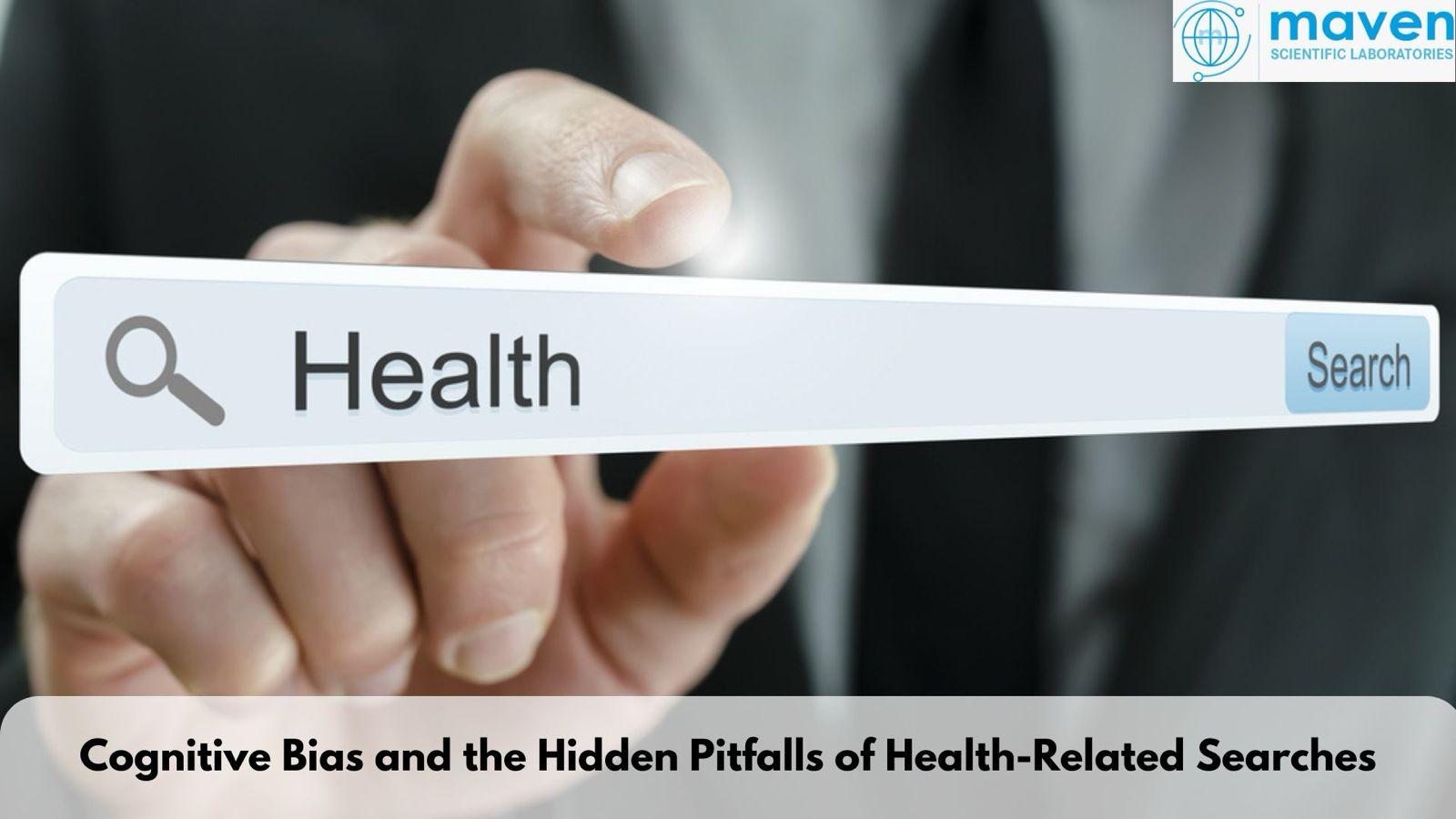
Cognitive Bias And The Hidden Pitfalls Of Health-Related Searches
We’ve all done it—typed our symptoms into Google, clicked on a few links, and convinced ourselves we’re experts in our own diagnosis. Whether it’s figuring out the cause of a lingering headache or looking up diet tips, search engines have revolutionized access to health information.
But there’s a catch: while Google provides a treasure trove of information, it also has a way of amplifying our cognitive biases. This subtle yet significant issue shapes the way we search for, interpret, and act on health-related information, often with unintended consequences.
Let’s take a closer look at what’s really happening behind the scenes of our online health searches.
What Is Cognitive Bias?
Cognitive bias refers to the mental shortcuts—known as heuristics—that our brains use to process information quickly. These biases help us make sense of the world at lightning speed, which is great for survival but not so great when we’re navigating the vast and complex realm of health information.
While these shortcuts can sometimes be helpful, they often lead to skewed or irrational conclusions. Essentially, cognitive biases are like funhouse mirrors for our thoughts: they distort reality in ways that can shape our decisions, judgments, and even our perceptions of health.
How Does Cognitive Bias Play into Online Searches?
When searching online, cognitive bias doesn’t just tag along for the ride—it often takes the wheel. It influences:
- The questions we ask: What we search for is often framed by what we already believe.
- What we click on: Articles and headlines that confirm our preconceived notions are more likely to grab our attention.
- How we interpret results: Even balanced information can be read through the lens of our biases, leading us to selectively absorb content that fits our narrative.
The SEO Connection
Search engines like Google are designed to deliver relevant results tailored to individual users. While this personalisation can enhance the user experience, it also opens the door to reinforcing biases.
For example, let’s say you believe caffeine contributes to hypertension. Your search Terms does caffeine cause high blood pressure?”—are already skewed toward confirming your belief. Once you click on articles that align with this view, search engines begin prioritising similar content in future searches. This creates a bias loop, where the algorithm amplifies your existing beliefs, regardless of their accuracy.
When Bias Meets Health Searches: The Risks
In the context of health, cognitive bias can have serious implications. Here’s why:
- Misinformation Proliferates
- Personalised search results may surface content that confirms biases, even if it’s scientifically unsound.
- This can perpetuate myths and misunderstandings about health conditions or treatments.
- Delayed Professional Help
- When search results reinforce biases, users may feel validated in their decisions to delay seeking medical advice.
- For instance, someone might believe they don’t need a health screening based on biased information, potentially missing early warning signs of serious conditions.
- Oversimplification of Complex Issues
- Health is rarely black-and-white, but cognitive bias thrives on oversimplification.
- Nuanced topics like diet, medication, or chronic conditions can be reduced to misleading conclusions.
How Search Engines Amplify Cognitive Bias
Search engines don’t just passively display results—they actively prioritise them based on user behaviour. Their powerful natural language processing (NLP) algorithms analyse the context and relevance of search terms, often favouring content that aligns with the user’s past interactions.
This means that our searches don’t exist in a vacuum. Every click, search, and query subtly shape what we see next, creating an echo chamber of information that may feel accurate but isn’t always balanced.
What Can Be Done?
Cognitive bias in search isn’t a problem we can eliminate overnight, but there are steps we can take to mitigate its effects:
- Be Aware of Your Biases
- Acknowledge that your beliefs influence how you search.
- Approach health-related searches with an open mind, seeking information from diverse, credible sources.
- Use Neutral Search Terms
- Frame your queries in ways that invite balanced information. For example, instead of asking, “Does caffeine cause hypertension?” try “What is the relationship between caffeine and blood pressure?”
- Verify Information with Experts
- Always cross-check online findings with reliable, peer-reviewed sources or healthcare professionals.
- Platform Responsibility
- Search engines and health platforms must prioritise accurate, evidence-based content and flag potentially misleading information.
Conclusion:
In a world where health information is just a click away, cognitive bias presents a hidden but significant challenge. By shaping how we search, interpret, and act on information, these mental shortcuts can lead us astray—sometimes dangerously so.
As users, we must strive to remain vigilant, questioning the information we encounter and seeking expert advice when in doubt. Simultaneously, platforms like Google bear a responsibility to ensure their algorithms prioritise accuracy over convenience.
After all, a healthier digital landscape leads to healthier decisions—and healthier lives.







